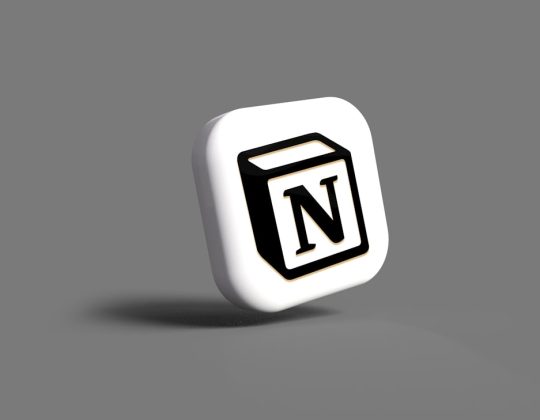Ever wondered what those .mkv files are when you’re downloading or streaming videos? You’ve come to the right place. MKV is one of the most popular video file formats today. Whether you’re watching an anime, a movie, or a TV show, there’s a good chance it’s packed inside an MKV.
What Is an MKV File?
MKV stands for Matroska Video. It’s a multimedia container format. That means it can hold video, audio, and subtitles—all in one file!
Think of it like a lunchbox. You open it up and find a sandwich, a juice box, and a snack. It’s all packed together neatly. That’s exactly what MKV does for your media: bundles it into a single file.
Who Invented It?
The format was created in Russia back in 2002. The name Matroska comes from the Russian word for those nesting dolls—you know, the ones where a doll fits inside a bigger one. Makes perfect sense, right?
What Can MKV Files Contain?
MKV isn’t just a video file. It’s a whole package. Here’s what it can include:
- Video Streams: MPEG, H.264, H.265 and more
- Audio Streams: MP3, AAC, DTS, FLAC, etc.
- Subtitles: SRT, ASS, SSA, VobSub, and even PGS (Blu-ray)
- Chapters: Like on a DVD or Blu-ray
- Menus: Yes, actual menus—though rarely used
It can even support multiple audio or subtitle tracks. Want to watch a film in Japanese with English subs? MKV’s got you covered.
Why Use MKV?
There are many reasons to love this format. Let’s break down the cool stuff:
- Open Source: MKV is free and open. No licensing hassles!
- High Quality: Keeps your videos crisp and clear.
- Universal: Works with many audio and video types.
- Error Recovery: Keeps playing even if the file is damaged.
- Future-Proof: Constantly updated and supported.
Common Uses of MKV
MKV is used all over the world for:
- Backing up DVDs or Blu-rays
- Storing high-resolution movies
- Fansubbing anime (adding custom subtitles)
- Streaming media content
It’s the go-to format for media lovers who want flexibility and power.
Is MKV Better Than MP4?
That’s a classic debate. Here’s a quick comparison:
| Feature | MKV | MP4 |
|---|---|---|
| Flexibility | ⭐⭐⭐⭐⭐ | ⭐⭐⭐ |
| Compatibility | ⭐⭐⭐ | ⭐⭐⭐⭐⭐ |
| Subtitles | ⭐⭐⭐⭐⭐ | ⭐⭐⭐ |
| File Size | Large | Medium |
Conclusion? If compatibility is your primary concern, go for MP4. If you want a powerful format that holds everything—video, audio, subtitles—MKV is king.
Popular Players That Support MKV
Worried that your media player won’t support MKV? Fear not! Here are some awesome players that do:
- VLC Media Player – Available on Windows, Mac, and Linux
- PotPlayer – A favorite among advanced users
- KMPlayer – Lightweight and stylish
- MPC-HC – Old but gold
- Plex & Kodi – For home theater streaming
If your player doesn’t support MKV, simply install a codec like K-Lite Codec Pack, or better yet, switch to VLC!

Editing MKV Files
Want to cut scenes, add subs, or switch audio tracks? Easy! MKV files are editable with simple tools like:
- MKVToolNix: The most popular toolkit for editing MKV files
- HandBrake: Great for compressing and converting
- FFmpeg: A powerful command-line tool
With these tools, you can split, merge, or customize files down to the smallest detail.
Streaming MKV Files
MKV works pretty well with streaming too. A few platforms and smart TVs may struggle with it, but many are being updated to support it natively. Plus, apps like Plex and Emby can transcode MKV on the fly for seamless playback.
Risks and Limitations
No format is perfect. Here are some of the drawbacks:
- Not supported by all devices (especially older ones)
- Larger file sizes compared to formats like MP4
- No DRM support—fine for personal use, but not streaming services
Still, for local video storage or home streaming, MKV is hard to beat.
Fun Fact: MKV Is Not a Codec
Important to know—MKV is not a codec. It’s a container. That means it stores content but doesn’t actually encode it. Your file’s codec could be H.264, H.265, VP9, etc. So when someone says “MKV isn’t supported,” they might really mean the codec inside isn’t supported.
How to Convert MKV Files
Need to switch from MKV to MP4 or another format? Use tools like:
- HandBrake
- FFmpeg
- UniConverter
Just remember: converting might result in loss of quality. So if you’re after the best video experience, keep the MKV!
Where Can You Get MKV Files?
MKV files are everywhere! You can find them on:
- Video sharing platforms (like fansub groups)
- Torrents (always download safely)
- Ripping your own Blu-rays or DVDs
Just make sure you respect copyright laws. Always use MKV files for legal and personal use.
Final Thoughts
MKV is like the Swiss Army knife of video formats. It’s flexible. It’s powerful. It’s surprisingly easy to use.
If you’re dealing with lots of media and want freedom, go with MKV. It’s the future-proof format that keeps you in control.
Whether you’re a casual moviewatcher or a digital media geek, MKV has something for everyone. Now go enjoy your videos—crispy HD, crunchy surround sound, and perfect subtitles—all in one tidy package!








